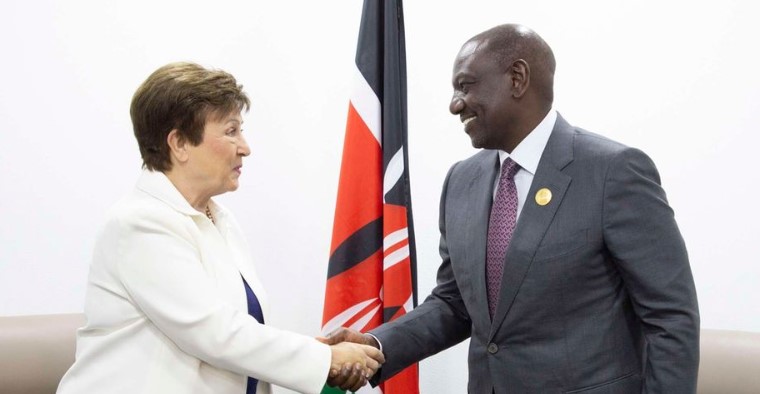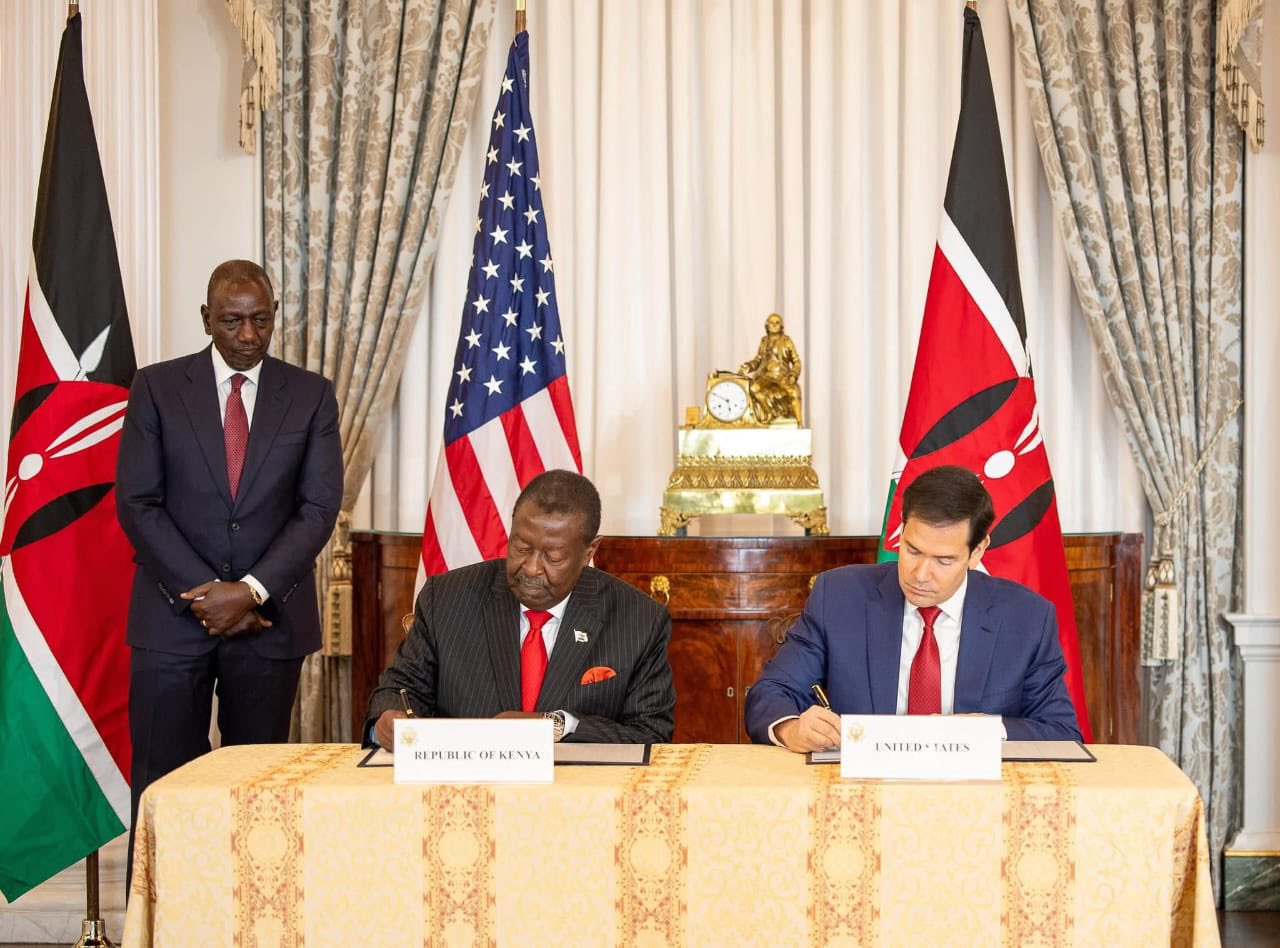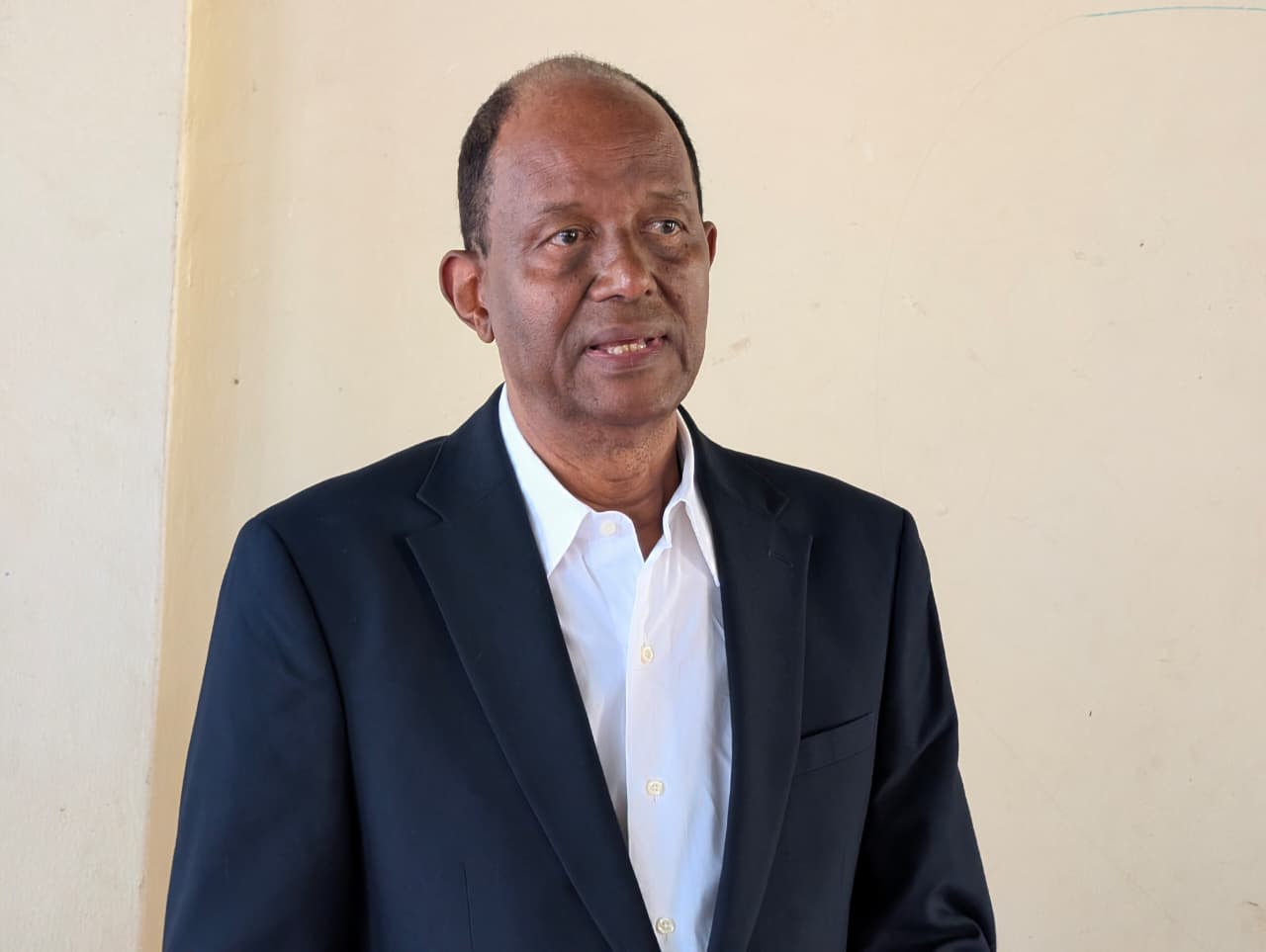Kenya’s support programme by IMF slashed by Sh38bn on eased debt pressure

Kenya managed to sell a new $1.5 billion Eurobond in February from international markets, albeit at a steep price, and partly paid the loan.
Kenya and the International Monetary Fund (IMF) have reached a staff-level agreement on the seventh review of the Extended Fund Facility and Extended Credit Facility arrangements, giving way for the disbursement of $976 million (Sh126.5 billion).
This is if the agreement will be approved by the IMF's Executive Board.
More To Read
- Ruto backs IMF partnership as key to Kenya’s debt, economic reforms
- World Bank upgrades Kenya’s growth outlook to 4.9 per cent, warns of elevated risks
- Africa’s share of global extreme poverty rose by 30 per cent in 10 years - World Bank
- Revenue raise, prudent debt key to Africa’s 2026 upgraded growth prospects - IMF
- World Bank urges shift to local currency loans in Africa
- Kenya ranked 10th in Africa’s most attractive investment destinations
The fund's access is however a scale down from the initial $1.27 billion (Sh164.6 billion).
IMF attributes the cut to the partial refinancing of the inaugural $2.0 billion Eurobond earlier this year, which did enough to ease the default pressure.
Kenya managed to sell a new $1.5 billion Eurobond in February from international markets, albeit at a steep price, and partly paid the loan.
Last week, the Central Bank Governor Kamau Thugge said Kenya will use part of a $1.2 billion World Bank budget support loan to make a payment of the remaining, roughly $500 million.
Kenya's current IMF deal, which is for a total of $3.6 billion (Sh466.7 billion), was agreed in April 2021. The current review is the seventh under the programme.
Shortfall in tax revenue collection
The lender however raises concern over the significant shortfall in tax revenue collection and deterioration in the primary fiscal balance in FY 2023/24 which relative to programme targets, is expected to keep domestic borrowing needs elevated.
"As a result, interest payments have increased, putting pressure on public debt even after the state benefited from a strengthened shilling," IMF said.
It therefore recommends that a sizable and upfront fiscal adjustment in the FY 2024/25 will be needed as it will be a remedy to the situation.
Notably, the authorities have since taken decisive steps towards fiscal consolidation by introducing several measures in the context of the draft 2024/25 Budget and the 2024 Finance Bill.
The Cabinet Secretary, National Treasury and Economic Planning, Njuguna Ndung'u is due to present the 2024/25 (July-June) budget to parliament on Thursday.
The 2024/25 budget will be accompanied by the Finance Bill, 2024 a separate law outlining revenue-raising proposals which some critics say could cripple sectors including financial services, transport, manufacturing and retail.
Steadfast implementation of a comprehensive package of mutually reinforcing policies is crucial to maintaining macroeconomic stability, ensuring debt sustainability, bolstering market confidence, achieving the program's objectives and enhancing Kenya's medium-term prospects, the lender said in part.
"This would also help maintain favourable inflation differentials with trading partners, boost export competitiveness and mitigate balance of payments pressures."
Top Stories Today













































